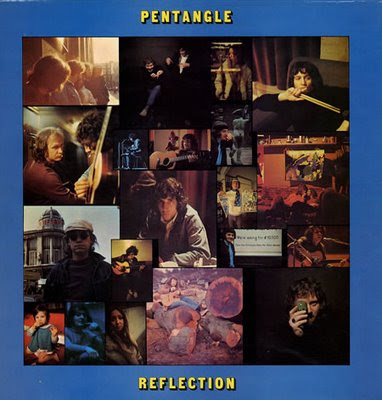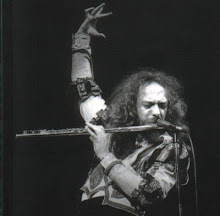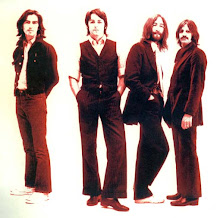+(Frente+-+1973).jpg)
Formed in late 1969 by brothers Christian Descamps (vocals) and Francis Descamps (keyboards) and later joined by guitarist Jean-Michel Brézovar, bassist Daniel Haas and Gérard Jelsh on drums, this
French symphonic progressive rock band, similar to contemporaries such as Genesis and King Crimson, is undoubtedly France's most important prog band. Marrying prog rock influences with French folk and theatrical vocals à la Jacques Brel (Ange covered Ces Gens-là from Brel, and it turned out to be their first hit in 1970), Ange's music, but mostly their lyrics, are second to none. Thirty years later, after multiple lineup changes, charismatic and theatrical frontman Christian Descamps leads the new Ange generation alongside his son Tristan on keyboards, Hassan Hajdi on guitars, Thierry Sidhoun on bass, Caroline Crozat on vocals and Benoît Cazzulini on drums.
The classic line up (except for the drummer which changed often) recorded many cult classics, such as « Caricatures », « Le Cimetière des Arlequins », and a series of masterpieces like « Au-delà du Délire », « Émile Jacotey », « Par les Fils de Mandrin » and « Guet-Apens ». 10 years after « Guet-Apens », the same lineup would reunite and release two albums, « Sève qui Peut » in 1989 and « Les larmes du Dalaï-Lama » in 1992. While being modern, these albums nevertheless captured the main ingredients unique to Ange. Their latest albums, « Culinaire Lingus » and « ? » see the band as inspired and pertinent as ever, as if Descamps had found the secret of eternal youth.This band is more than highly recommended, it is mandatory listening for fans of theatrical symphonic progressive rock, especially the period between « Caricatures » and « Guet-Apens ».
Eric Beaudin 2006
Le Cimetière Des Arlequin - 1973





.jpg)
+(Frente+-+1973).jpg)
































